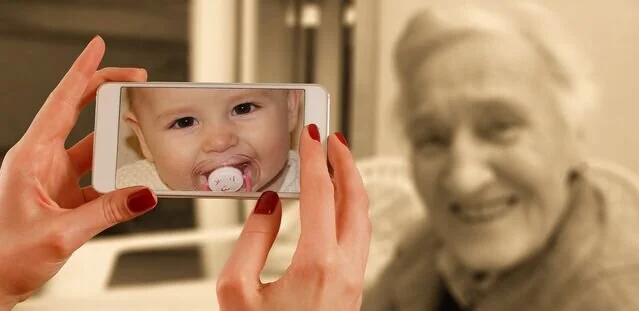Does life get more or less meaningful as we age?
“Meaning in life” sounds so grandiose, but it’s really pretty ordinary. Any time we ask “Who am I?” and “What should I be doing?”, we’re pondering meaning.
A question often asked by psychologists is whether people’s sense of meaning increases or decreases as they age.
According to research, the answer may be “both.” It depends on what type of meaning we're talking about. Some kinds of meaning increase as we age, others decrease.
Younger people tend to gain meaning through their pursuit of future goals, whereas older people tend to gain meaning through reflecting on past accomplishments.
I just turned 45. It passed without commotion. Although a few Zoom calls and text messages marked the day as special, given that we’re still in the midst of a pandemic, there were no parties, dinners, or ceremonial unwrapping of gifts. Like most birthdays, however, it was an occasion for introspection, for reminiscing about the past and looking to the future—in short, for considering the meaning of life.
The phrase “meaning of life” sounds so grandiose, but it’s really pretty ordinary. Any time we ask questions like “Who am I?” and “What should I be doing?” we’re pondering issues of meaning. Most of us first developed a sense of what our lives mean in adolescence, spurred on by the processes of crafting our identity, discovering our values, and adopting goals for the future. But, meaning evolves. Because all of these processes continue and change throughout the lifespan, it seems reasonable that our sense of meaning should change, too. In my late teens, I was sure that the meaning of my life would be to help people. So, I set my sights on becoming a psychotherapist. As time has moved forward, however, I’ve discovered that I’m much more drawn to research, teaching, and nurturing the next generation of psychologists. I also find that I derive greater and greater meaning from old friendships.
An interesting question often asked by psychologists is whether people’s sense of meaning increases or decreases as they age. Who do you think would perceive their lives as more meaningful: new high school graduates about to begin the next stage of their lives or older adults about ready to retire?
According to research, the answer may be “both.” It depends on what type of meaning we’re talking about. Younger people tend to gain meaning through their pursuit of future goals, whereas older people tend to gain meaning through reflecting on past accomplishments.
In one study, for instance, researchers surveyed almost nine-thousand people from around the world, ranging in age from their late teens to over 65. To assess meaning, they used a psychological test yielding two scores. The “search” score indicated how much people were actively striving to find meaning in their lives, whereas the “presence” score indicated how much they were reflecting on the meaning their lives already contained. Interestingly, these two scores appear to move in opposite directions over the lifespan. Whereas “search” scores were relatively high in younger people, they were lower for older adults. In contrast, “presence” scores were lower in younger people and higher in older adults. Although the sizes of these differences between younger and older participants weren’t dramatic, they highlight a potentially important trend in the way people construct meaning at different times in life.
These findings are remarkably consistent with a classic theory proposed by Erik Erickson. If you’ve ever taken an introductory psychology course, chances are you’ve heard of his psychosocial stages of development. According to Erikson, between our teenage and middle-age years, we’re busy establishing our lives by undertaking tasks like finding someone to love and growing a career. But, as people enter their mid 60s, they reduce this relentless pursuit, instead looking back and asking, “Was this good?”. Research shows, for instance, that older people report having fewer goals than their younger counterparts and spend somewhat more time reminiscing about the past. In other words, for younger people, life’s meaning hasn’t yet fully unfolded—it’s about future possibilities. As we age, however, meaning may be more about looking back and counting our blessings.
At 45, I’m halfway between these two points. I’m definitely still looking to the future, finding excitement in the next goal, the next project, the next adventure. But I’m also glancing back, counting my blessings, calling old friends, and reminiscing about past adventures. No matter what stage of life we’re in, however, it’s nice to know that meaning is something that’s within our reach. It’s only a matter of whether we’re reaching forward or reaching back.

